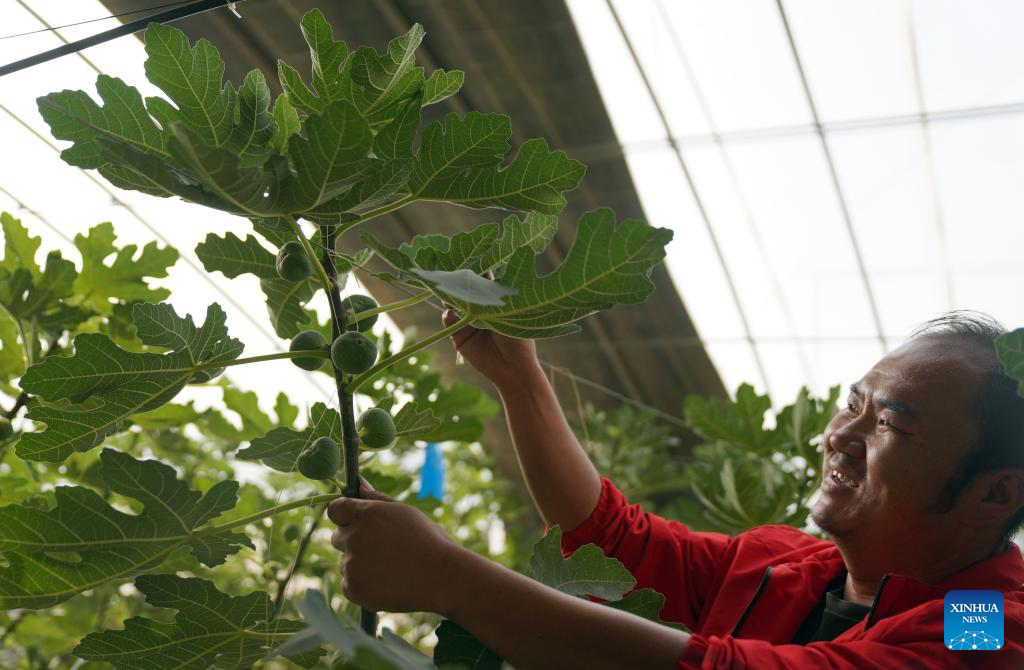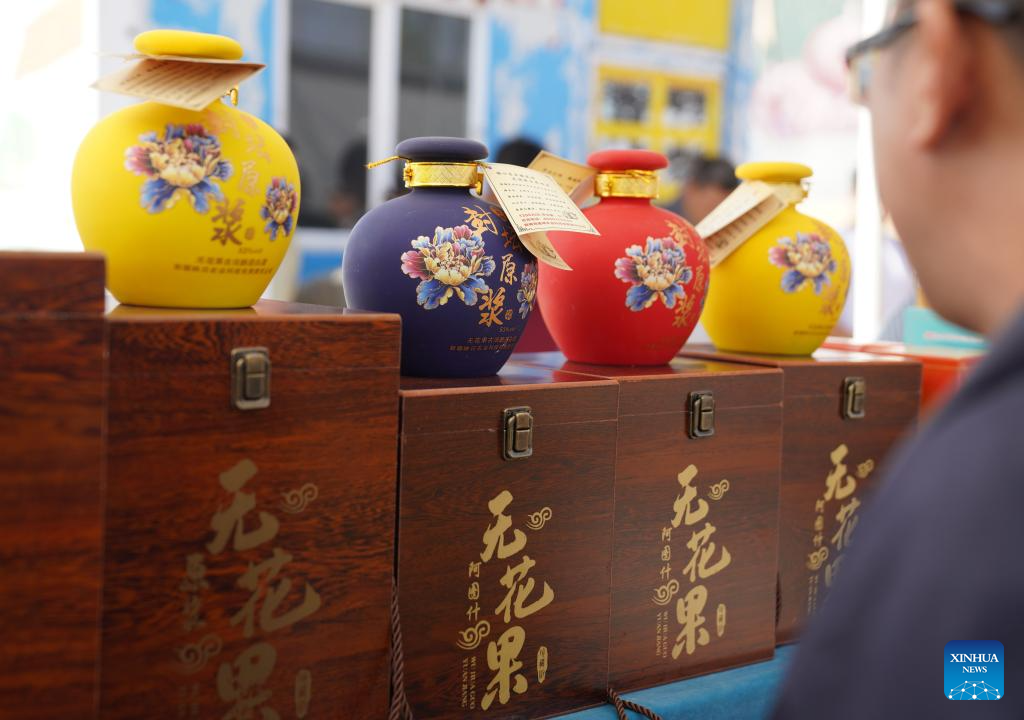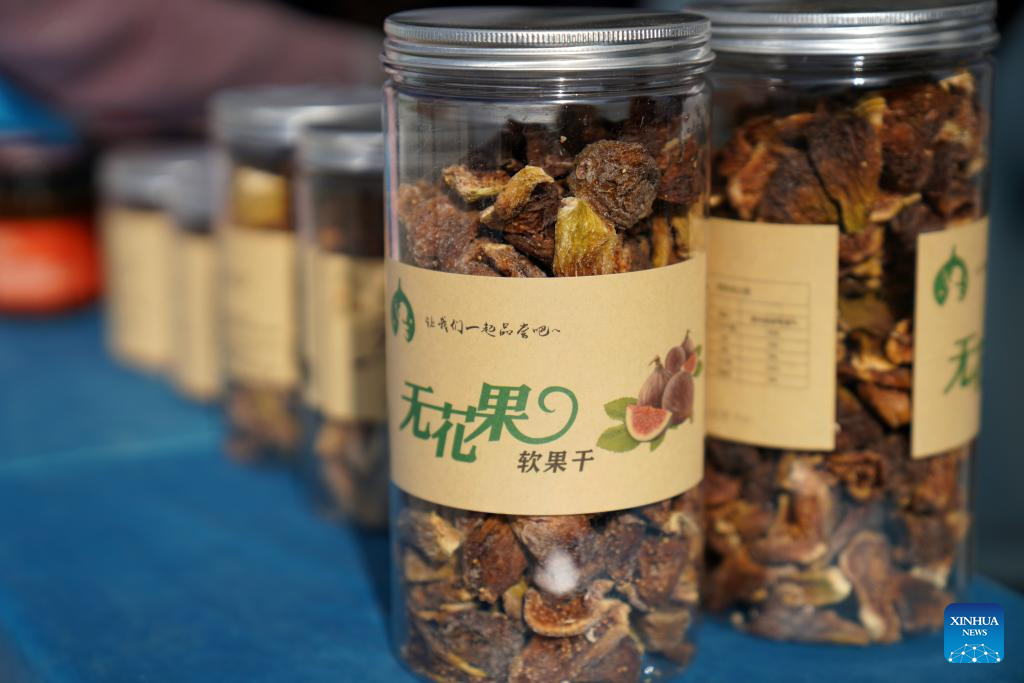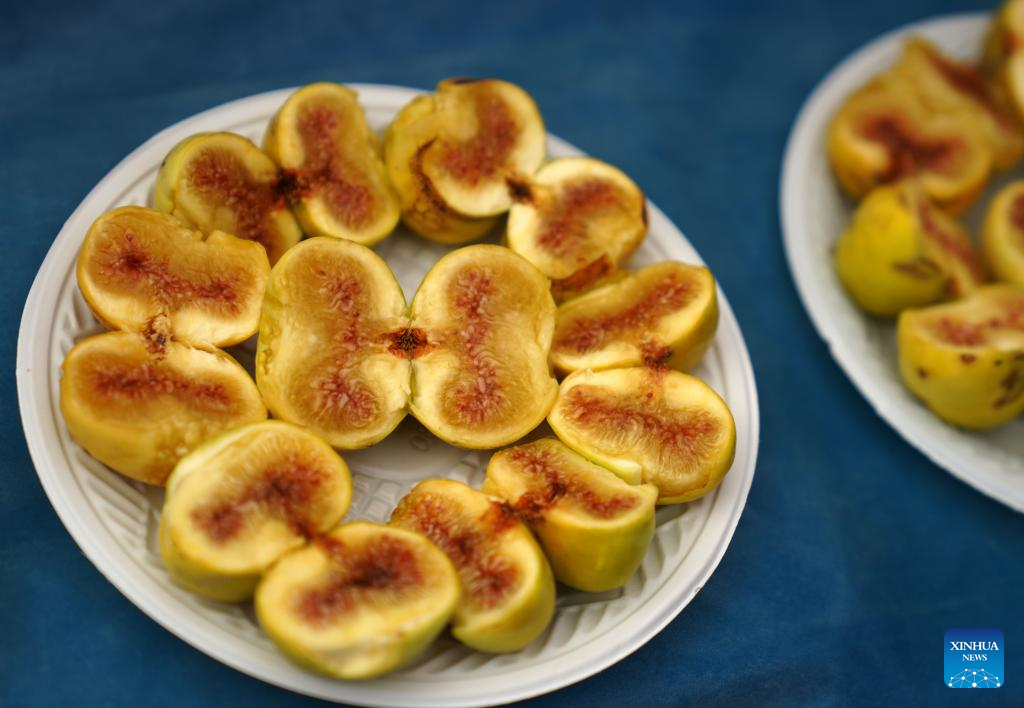


A staff member shows facial masks using figs as an ingredient at an agricultural base at Takut Village of Atux City, northwest China's Xinjiang Uygur Autonomous Region, Sept. 24, 2024. Takut village has been developing fruit planting industry to help increase the income of local people in recent years. Now, the village has an agricultural base covering 138 Mu (about 9.2 hectares) and 97 greenhouses for fruit and vegetable planting.
A team from the Chinese Academy of Agricultural Sciences has also been invited to the village to provide technology support for local farmers, especially in their fig growing. (Xinhua/Zhao Yusi)

A staff member trims the branches of a fig tree at an agricultural base at Takut Village of Atux City, northwest China's Xinjiang Uygur Autonomous Region, Sept. 24, 2024. Takut village has been developing fruit planting industry to help increase the income of local people in recent years. Now, the village has an agricultural base covering 138 Mu (about 9.2 hectares) and 97 greenhouses for fruit and vegetable planting.
A team from the Chinese Academy of Agricultural Sciences has also been invited to the village to provide technology support for local farmers, especially in their fig growing. (Xinhua/Zhao Yusi)

A visitor looks at bottles of fig wine displayed at an agricultural base at Takut Village of Atux City, northwest China's Xinjiang Uygur Autonomous Region, Sept. 24, 2024. Takut village has been developing fruit planting industry to help increase the income of local people in recent years. Now, the village has an agricultural base covering 138 Mu (about 9.2 hectares) and 97 greenhouses for fruit and vegetable planting.
A team from the Chinese Academy of Agricultural Sciences has also been invited to the village to provide technology support for local farmers, especially in their fig growing. (Xinhua/Zhao Yusi)

A staff member shows perfumes using figs as an ingredient at an agricultural base at Takut Village of Atux City, northwest China's Xinjiang Uygur Autonomous Region, Sept. 24, 2024. Takut village has been developing fruit planting industry to help increase the income of local people in recent years. Now, the village has an agricultural base covering 138 Mu (about 9.2 hectares) and 97 greenhouses for fruit and vegetable planting.
A team from the Chinese Academy of Agricultural Sciences has also been invited to the village to provide technology support for local farmers, especially in their fig growing. (Xinhua/Zhao Yusi)

Dried figs are displayed at an agricultural base at Takut Village of Atux City, northwest China's Xinjiang Uygur Autonomous Region, Sept. 24, 2024. Takut village has been developing fruit planting industry to help increase the income of local people in recent years. Now, the village has an agricultural base covering 138 Mu (about 9.2 hectares) and 97 greenhouses for fruit and vegetable planting.
A team from the Chinese Academy of Agricultural Sciences has also been invited to the village to provide technology support for local farmers, especially in their fig growing. (Xinhua/Zhao Yusi)

Sliced figs are displayed at an agricultural base at Takut Village of Atux City, northwest China's Xinjiang Uygur Autonomous Region, Sept. 24, 2024. Takut village has been developing fruit planting industry to help increase the income of local people in recent years. Now, the village has an agricultural base covering 138 Mu (about 9.2 hectares) and 97 greenhouses for fruit and vegetable planting.
A team from the Chinese Academy of Agricultural Sciences has also been invited to the village to provide technology support for local farmers, especially in their fig growing. (Xinhua/Zhao Yusi)
点击右上角![]() 微信好友
微信好友
 朋友圈
朋友圈

请使用浏览器分享功能进行分享
